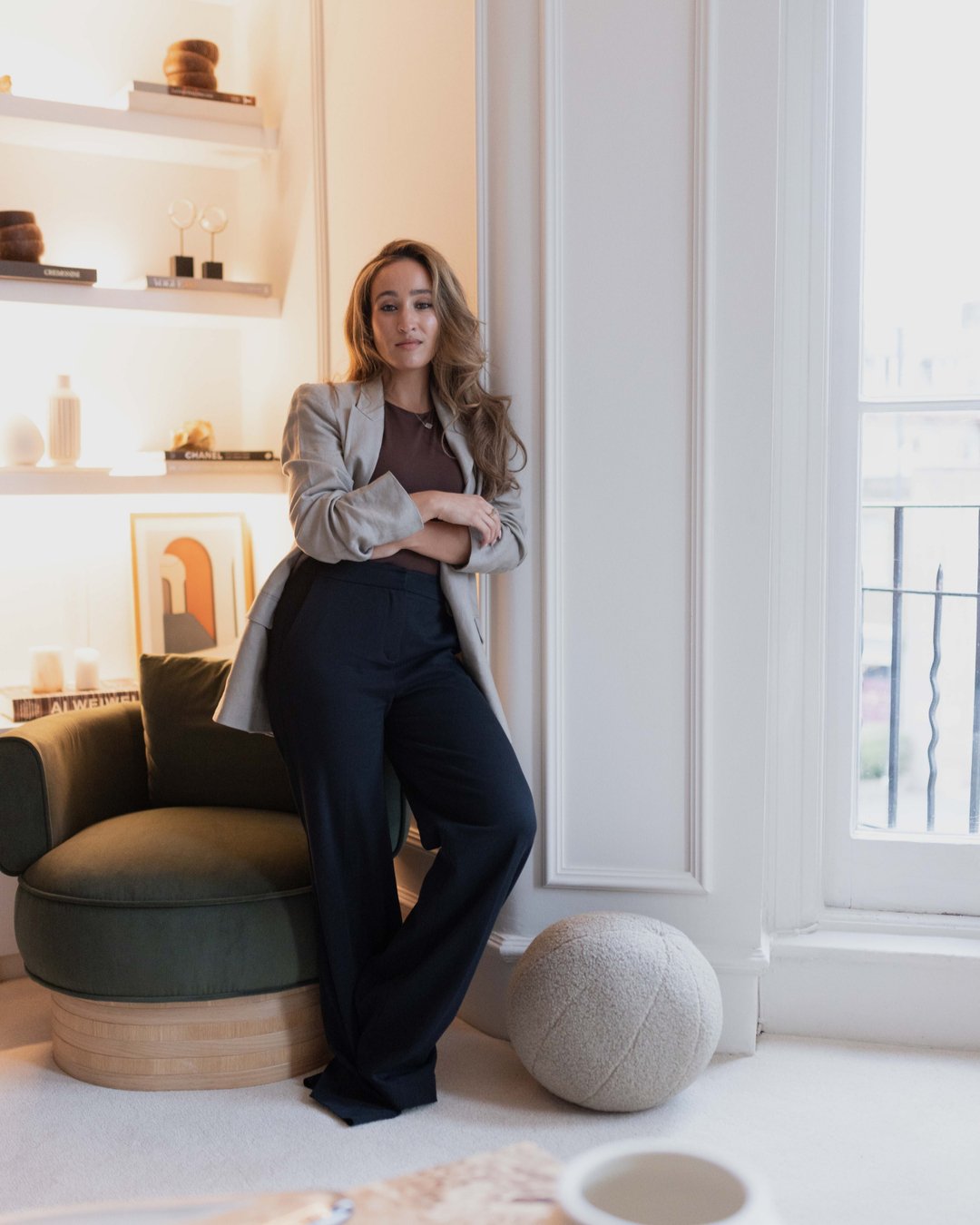10 Powerful Communication Tools You Need in Your Relationship with Amira Mansour
Amira, aka, The Communication Expert, works with companies and individuals to help them communicate with themselves. This in turn enables them to get the best out of their relationships. She’s a believer that communication is the essence of understanding who you are and creating relationships where you feel heard and understood makes you feel happier on a deeper internal level. Communicating is something we’re all doing all the time, whether we realise it or not. However, it’s not always something we’ve learnt how to do well.
She’s here to teach you 10 powerful communication tools to use in your relationship. Let’s get started!
Most of us grew up without learning what healthy communication looks like. And so it’s no surprise we can end up in relationships where we feel misunderstood and constantly in a cycle struggling to resolve conflict. For some of us, our family dynamic was explosive and fiery and for others, issues were brushed over without much room for discussion. This plays a significant part in how we show up in our romantic relationships.
Being able to be vulnerable, express your feelings and open up to your partner are essential skills to cultivating healthy communication. But if this isn’t yet a habit in your relationship, I’m sharing my 10 tools that can help you enhance the way you connect and relate to your partner. Every relationship is different, has its own dynamics and will face various obstacles but knowing how to effectively resolve conflict and understand each other, will help you communicate through these moments.
And as you get better at communicating with your partner, you’ll notice that you’ll resolve the tougher conversations in a more effective way, you’re more likely to feel an intimate connection as you both learn to communicate your needs, expectations, values and beliefs and you’ll spend less time overthinking and replaying the difficult moments in your mind.
Know your communication styles.
Miscommunications can often stem from communicating with your partner in a way that they’re not used to. There are 4 communication styles; Driver, Amiable, Expressive and Analytical and whilst these can change, you’ll tend to find yourself with a dominant communication style (or two). If your partner is a Driver, you’ll probably notice them communicating in a clear, direct way and enjoy getting straight to the point. If your partner communicates in an Amiable way, you’ll find them wanting to build rapport and include different perspectives within the conversation. An Expressive communicator will focus on the bigger picture and bring a significant amount of energy and enthusiasm to the conversation. An Analytical communicator will focus on the facts of the discussion and ensuring these are correct. You may also find them particularly detailed orientated. Start to observe the way your partner communicates over the next few days and consider how you can adapt you communication style to get your message across in the way that works best for them.
Get out of your bad communication habits.
We all have communication habits that aren’t healthy and can make arguing with our partner worse. And it’s often our default reaction that’s been programmed from our childhood. Focus on breaking the pattern by doing something different in the moment. If you find yourself raising your voice, could you take a time out and come back to the conversation when you’re calmer? If you find yourself blaming your partner, can you pause and change your language to express how you feel instead?
Swap the blame game for ownership.
It can feel almost habitual to point the finger at your partner and highlight everything you feel they’ve done wrong. Unfortunately this isn’t going to help the way you communicate with each other. It isn’t about who’s right or wrong and arguing about the facts won’t help you reach a resolution that works for both of you. Instead focus on how you feel in the situation and use “I feel” to help you express this in an effective way. You have more change of feeling heard and understood.
Choose the right time.
Choosing the right time isn’t about a particular day or time that you ‘should’ speak to your partner. It’s about taking a mindful approach when you want to address something between you. We find ourselves overthinking and ruminating on something that’s upset or bothered us and can approach the conversation from this space. Instead, choose a time where you’ve had space to regulate your emotions and consider when your partner may be in a good space to receive the conversation you want to have.
Listen to understand not to respond.
We have a desire to respond, defend, relate and fix problems when people and particularly our partner shares a problem or issue with us. However, the power lies in listening. Truly listening. This means not interrupting what they’re saying, finishing their sentence or waiting for your turn to speak. Challenge yourself to say nothing when your partner is speaking, maintain eye contact and share verbal nods to show you’re listening. The aim is to not share a similar story of how you felt a similar way or to get defensive when you may not like what you’re hearing.
Say something instead of nothing.
When it comes to communicating with your partner, silence isn’t golden. It can be damaging and hurtful. It may be your stress response to go quiet, to think you’re keeping the peace or to convince yourself it’s not worth it. Whilst taking a timeout isn’t a bad thing, it can be helpful to let your partner know that this is what you need. The next time you feel yourself shutting down remind yourself to let your partner know how you’re feeling, what’s going on and why you may be feeling afraid or apprehensive.
Give love in the way your partner wants it.
Gary Chapman, a marriage counsellor & therapist, developed the concept of The 5 Love Languages. We often know our own love language but can give this less thought when it comes to our relationship. It isn’t about having the same love language as our partner to communicate effectively, it’s about adapting the way you show love to your significant other. For example, if their love language is Words of Affirmation, they’ll appreciate hearing you say “thank you” or “I’m grateful you made dinner tonight”. Alternatively, if their love language is physical touch giving them a hug or leaning on them when you’re on the sofa watching TV will help them feel appreciated. If your partner’s dominant love language is Quality Time, they’ll be looking for your attention and presence. Show them that you’re listening. Acts of Service means your partner will value you doing something for them or asking how you can help. It’s an act that can help make their life easier. The 5th and final love language is Gifts. This doesn’t mean your partner will want the most expensive gift (although they may!) but it does mean that they’re looking at the thought that’s gone into the gift whether it’s been purchased or made.
Be present.
In a world full of distractions being present allows you both to connect, listen and understand each other. This may mean setting time aside in the day without your phones, laptop or children or it could be a check in with each other on a regular basis throughout the week or month. It’ll give you time to focus without feeling the need to concentrate on multiple things at once.
Ask questions to understand.
Asking your partner questions allows you to clarify and deepen your understanding of a conversation, how they feel and to ascertain whether their needs are being met. It’s also a great tool to help you refrain from responding rather than listening. Mastering this tool will enable your partner to feel heard and understood.
Communicating in a healthy way with your partner is an ongoing journey. Allow it to evolve and change as you both grow together. Why not take 1 tool from the above and discuss it with your partner to see the best way you can apply it to your relationship.


